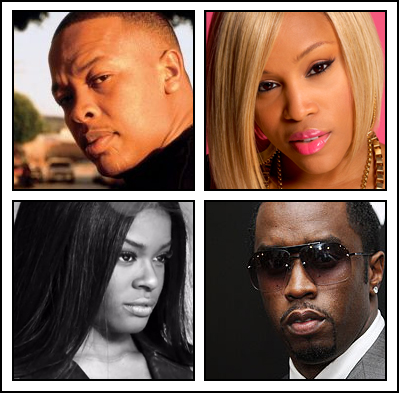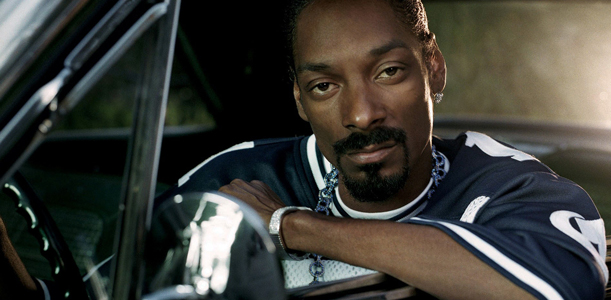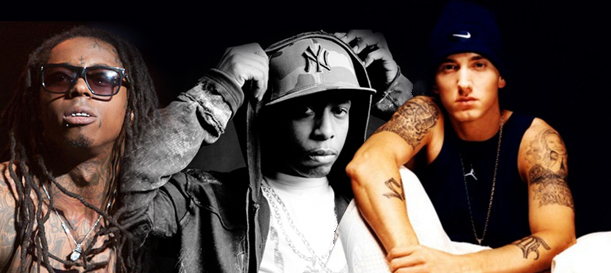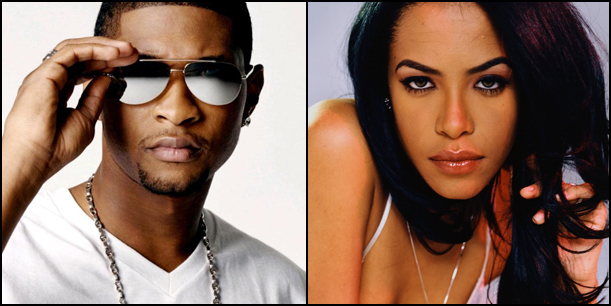-
Black Music Month 2013 - Part 3
June 18, 2013
Have an opinion? Add your comment below. Jerry "Doc" Boulding weighs in on the state of Urban radio.
-
A Safer Reality
June is not only Black Music month; it is also a month of graduations. We dedicate this chapter to this year's graduates and their rites of passage. We invite them to join us as examine our newest musical generation -- hip-hop -- and look at the impact it has had on society in general and radio in particular.
Throughout the history of music business, black music has been associated with various artists who have defined the music of their generation, providing a soundtrack for the myriad of social and cultural changes of each decade. For many, we are now in the hip-hop or rap generation. And perhaps because we have lived with it and understand it better, even if we don't completely agree with it, we fear it less. For that reason, much like hard rock, today's hip-hop has become a "safer reality."

In spite of the notion of diminishing fear, hip-hop's insistent lyrics, aggressive pulse and often, no-nonsense overview are still scary for some. We attribute that at least partly to racism and ignorance. The fact is that hip-hop represents a unique subculture and its message seems very much overstated. Actor/comedian Bill Cosby once launched a vocal crusade against what he called the insulting depiction of African-Americans in hip-hop generation television shows.
One of the first assumptions is that the language of youth-oriented music matters and the language of other forms of popular music do not. The second assumption is that the intentions of music forms such as heavy metal and rap are subversive in ways that the intentions of other forms of popular cultures are not.
The two assumptions are understandable, given the social history of each musical genre. Rap and heavy metal appeal to youth, particularly male youth, who are presumably more impressionable than the adult audience of, say, Country. And if Country songs get interpreted more benignly, perhaps it's because they have rarely been enlisted in the cause of generational warfare the way that rap has. Nonetheless, since America seems on the brink of yet another shouting march over popular music, it seems fair to submit each of these assumptions to more rigorous review: Is it really true that youth-oriented music such as heavy metal and rap represent a special case?

The first assumption that rock and rap lyrics should be interpreted literally is one that has been addressed extensively by scholars who study popular music. But their conclusions are equivocal. Popular music lyrics, not surprisingly, seem to track the social mores of the time. A study of more than a thousand songs recently found a strikingly different image of women in songs of the past few years. For example, in the 1990s popular rap songs were more than twice as likely to portray women as evil as songs in the 1980s, but only half as likely to depict them as needing a man.
But whether these changes create social attitude, particularly among youth, or simply reflect them is up in the air. For one thing, teens simply don't seem to understand what they are listening to most of the time. A recent study found only 14% of college students who heard the most popular hip-hop songs could accurately interpret their true meanings.
The second assumption -- that youth-oriented music is somehow more subversive than other music -- is even more difficult to evaluate. The language of youth music had stubbornly remained outside of the mainstream since its beginning with each new generation of performers vying to outdo the last in the level of sexual explicitness.
The history of profanity is profoundly cyclical, varying wide from the Middle Ages through the Renaissance and Victorian era, according to the moral temper of each generation. The important thing is that one generation of language catalysts distinguishes itself from its predecessors and that process can take many forms. Some hip-hop artists, whose beat is the harsh landscape of urban America, reflect a racially polarized society in which cultural heritage is obscured, opportunities limited and social services minimal.
Rap Running Wild
In today's musical environment, with all of the available choices, Urban radio can't completely run from rap and expect to score big ratings victories. This is particularly true with the advent of Arbitron's Personal People Meter (PPM) measurement system, which surveys kids as young as six. Even today's adult audience wants to hear the most popular rap artists. And although today's Urban adults have traditionally been a fixed commodity and always brought in a uniquely wide age demographic, that largest audience is changing as the median age of the baby boomers population rises.
For Urban radio, the answer is that you will have to play some rap songs early, just like the rest of the hits. Yes, you have will have to be careful of the transition songs on either side of the most popular rap hits ... but you should not ignore them. Black adults, in particular, are impatient. They won't wait for a new song they want to hear. They'll just run to your competition to hear it. Winning in 2013 and beyond means playing all the big hits at the right times and being careful of what you play and say around them.
Yes, there are the beginnings of a new candor about our culture, but the question remains: How did one segment of the African-American community come to represent the whole? First, black society itself placed emphasis on that lower caste. This made sense because historically that where the vast majority of us were placed. It's where American society and its laws were designed to keep us. Yet although doors have opened to us over the past 20 years, it's still commonplace for black leaders to insist on correcting the misconceptions that some whites have little knowledge of, and less interest in, black culture -- particularly young black culture.
They have no picture, no concept. Rap is a language they don't speak to and a race of people whose language they don't speak either. While it's true that a majority of those who become successful rappers started out in the projects, brought up to be hard because of what they've been through, rap has many forms and much stronger appeal than most give them credit for.
Pieces Of A Patchwork Quilt
In spite of the considerable progress that has been made with some areas of rap music and certainly important musical strides, discrimination still exists in our industries, business and government. Common sense and reality have both been affronted regularly in the anti-discrimination war. Much of this silliness and confusion stems from simple blindness to what a polyglot society is really like. In 2013 our country is still like a patchwork of many sub-societies (based on race, ethnicity, religion, national origin, education, cultural taste and language).

Every group naturally tends to exclude outsiders under certain circumstances. But this need not inevitably conflict with the achievement of a society that does not shut anybody off from any reasonable path of opportunity. The notion of an open pluralistic society becomes a contradiction in terms -- unless there is some common sense to limit both its openness and pluralism. To define that limit is difficult. Perhaps it can be fixed only case by case, as are conflicts between equally valid constitutional rights.
A grain of sense needs to be applied to the current situation. Too many excursions into absurdity will achieve more than amusement; they could make the whole cause of fair play seem silly. But fair play in a sense is what we need to be all about. The question then becomes "fair to whom?" And the answer is "fair to those who deserve and recognize that we are a different breed." We think different. We act different and we live different. That's because many of us in this music and radio business tend to be cut from a different cloth -- a fabric that outsiders often simply do not understand. Not because they don't want to, but because we live in two different worlds.
And this patchwork story holds many lessons for us today. It reminds us that history does not just happen. It does not unfold naturally like the seasons or rise and fall like the tides. History is made by people, who bend and shape the present to create the future.
Today, in 2013, most African-Americans are no longer "marching in the wrong direction." Instead, we have accepted hip-hop as a music format and we are moving toward seeing ourselves as we really are and demanding that others see us as individuals, not as shards of a degraded monolith. The American ideal places primacy on the rights of the individual. Yet historically, many African-Americans have been denied those rights. We can effectively demand those rights, effectively demand justice only when each of us sees him or herself as an individual with the right to any of the opinions, idiosyncrasies and talents accorded any other American.
One of the decades we can all remember is the one just past -- the '00s. That was the decade in which many of the songs, along with the artists, found new homes in the hearts of those who were in love and/or who needed something to reflect that love, that spirit. If rock reflected the energy of the '90s, rap and R&B penetrated the '00s with its energy and originality. This new wave of hip-hop and R&B had been building for years and this was the decade when it could no longer be denied. Blessed with a remarkable talent, collaborative spirit and a stack of infectious beats, the artists of the '00s became pivotal figures in the evolution of mainstream music in the studio, the amphitheaters and on the radio.
Hip-hip and R&B dominated the charts and radio airplay during the '00s. One of the reasons obviously, was the splintering of formats. Black radio split into mainstream, which played all the hits and appealed to teens and young adults, while their parents finally had their own station, usually called "kiss" or "magic-something." Although there were some songs and artists that overlapped, the separation usually started with adult Urban stations refusing to play any rap songs or artists, while the mainstream stations cut way back on ballads.
The '00s also saw the emergence and then the fall of the so-called "Smooth Jazz" stations whose playlists contained up to 70% black artists. In the beginning, some of these stations were called "Kenny G" Jazz stations because he was often the core artist most played and identified with that type of station. It was during the decade of the '90s and the '00s that even white AC and Hot AC stations joined with Top 40 in playing black artists that their audience research showed, grew up with and preferred this music.
Quite naturally, from a radio standpoint, in the competitive world of pop music, the '00s really was also the decade of heightened research. Someone once asked in a primarily white focus group, "How do you explain your feeling for some of these R&B songs and artists that scored so high on your list of favorites?" The response, over and over, and in various forms was "These songs make me feel good. I feel part of a special time." "I can relate to this music, these artists." "I remember what I was doing when this record first came out." And it didn't matter that the artists were African-Americans."
The '00s was also a decade of collaborations, one in which artists took genuine pride in one another's work and often made appearances on each other's record, from a creative community, which was in some ways reminiscent of the old Motown. This interchange was virtually unheard of in earlier decades because labels resisted having their artists going into the studio with those from other labels because they didn't want to split royalties or help boost other artists' careers.
These careers had been colliding and overlapping since the decade of the '60s when Bob Dylan sang about the times a-changing in 1964. Beginning back then, rock & roll and rhythm & blues were still very much the rallying cry of the counterculture. Over the past four decades, the times have gone right on changing. As for this generation and their children -- second generation hip-hop and R&B fans -- they rule the roost economically. And the rebellious attitude that once made this generation a threat to the status quo now belongs to the new Generation X, or Generation Y or Generation Jones.

Because for so long we have been forced to come from behind, before many of us can get in step, we've got to get in line. Unfortunately, the line usually starts at the rear. Despite the obstacles and the struggles, which are nothing new for most of us, we have an obligation to get and stay in step. That doesn't mean getting rid of any of the formulas and systems that have been part of our success. For those of us in radio, it means changing our show prep to include some brief information bits that may just spark the interest of some to change. This are important times and we need to encourage all of our listeners, young and old, to stay up on the issues that affect them and then turn out, register and vote.
Those who are in charge must begin paying more attention to our public affairs shows, many of which still run on the weekends, especially early Sunday morning. It means a mention of our musical history that reflects our achievements, not only to preserve the legacy of hundreds of years of struggle, but also to provide a bridge across adversity to a better life.
While we as African-Americans may remain an underrepresented segment within the mainstream, Urban radio and its music have come to mean more than ever before. There are always some who are out front. There have been radio stations who have become leaders in many cities and hopefully, even thought that number is shrinking, there will still be some as markets with smaller minority populations discover the influence our stations still have in our communities. All of this serves to prove that we really don't need quotas to succeed, just opportunity.
There are still opportunities for us to refinance the future and redistribute the wealth and the knowledge. But the only way for us to do this is through change. Change in attitude and change in responsibility. We as African-American communicators must become more aware and more committed to the use of our skills and talents for a purpose greater than ourselves. We must be ready and willing to take full advantage of some earlier lessons learned in the '90s and '00s we must develop an ear of responsibility -- one that owes a great deal to the lessons learned in the era of excess.
The past decade produced uneven black economic development, but also provided several lessons. For one thing, human capital investment pays off in higher earnings. And second, income and employment gains alone do not produce economic equality. Even in a divided economy we all have common interests.
Regardless of which generation you represent, we hope you enjoy our Black Music Month series. And we leave you this week with these thoughts. It is a hope of those of us who want America to fulfill her true promise of equality and opportunity and who want all of America's children of all colors, to share in the promise of the American dream. We must never forget that we are all connected. We hope that the music that brings us all together will help to forge a future that looks so different but so full of hope. And now that you have a chance to be part of it, grab it with both hands. And remember, you are meant to be whatever you dream of becoming.
Word.
Next Week - Part 4
-
-
